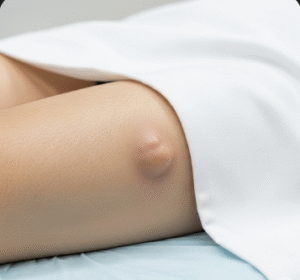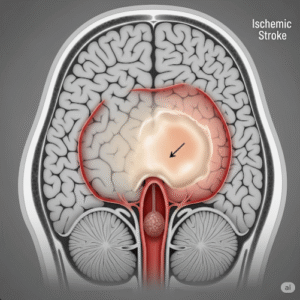Overview
Vaginal bleeding between periods or after sex is known medically as intermenstrual bleeding or postcoital bleeding. While occasional light spotting may be harmless, persistent or heavy bleeding can indicate an underlying condition affecting the reproductive system.
➤ Causes range from hormonal imbalances, infections, polyps, cervical or uterine abnormalities, to malignancies.
➤ Bleeding may occur mid-cycle, after intercourse, or irregularly between menstrual cycles.
➤ In Korea, gynecology clinics provide diagnostic evaluation, medical management, and advanced treatments for abnormal vaginal bleeding.
Key Facts
► Definition: Bleeding from the vagina occurring outside of regular menstrual periods or following sexual intercourse.
► Prevalence: Common; about 20% of women experience intermenstrual or postcoital bleeding at some point.
► Associated symptoms: Spotting, unusual discharge, pelvic pain, cramping, or bleeding after menopause.
► Risk factors: Hormonal contraception, infections, cervical or uterine polyps, cervical dysplasia, trauma, and malignancies.
► Treatment in Korea: Depends on the underlying cause and may include medications, minor procedures, or surgery.
What Is Vaginal Bleeding Between Periods or After Sex?
Intermenstrual bleeding refers to any light or heavy vaginal bleeding occurring outside the menstrual cycle. Postcoital bleeding occurs specifically after sexual intercourse.
➔ Spotting may appear as light brown or red discharge.
➔ Bleeding after sex is often linked to cervical or vaginal irritation but can also signal polyps or cervical cancer.
➔ Evaluating the pattern, duration, and associated symptoms is essential to distinguish benign from serious causes.
What Symptoms Are Related to Intermenstrual or Postcoital Bleeding?
Symptoms may include:
→ Spotting or light bleeding outside the menstrual period.
→ Bleeding after sexual intercourse, sometimes heavier than spotting.
→ Pelvic pain or cramping, often mild but sometimes moderate.
→ Unusual vaginal discharge, possibly indicating infection.
→ Bleeding after menopause, which is always abnormal and requires evaluation.
→ Fatigue or dizziness in case of heavier or prolonged bleeding.
→ Pain during sex if the bleeding is associated with vaginal or cervical irritation.
Causes / Possible Causes of Vaginal Bleeding Between Periods or After Sex
Hormonal Causes
➤ Hormonal contraception (pills, IUDs, implants) can cause breakthrough bleeding.
➤ Ovulation-related bleeding – Some women experience mid-cycle spotting.
➤ Menopause or perimenopause – Fluctuating estrogen levels may cause irregular bleeding.
Structural Causes
➔ Cervical polyps or uterine fibroids (leiomyomas) – Benign growths can lead to spotting.
➔ Endometrial hyperplasia – Thickening of the uterine lining may cause irregular bleeding.
➔ Vaginal or cervical trauma – From intercourse, surgical procedures, or instrumentation.
Infections and Inflammatory Causes
→ Cervicitis or vaginitis caused by bacteria, Candida albicans, or Trichomonas vaginalis.
→ Sexually transmitted infections (STIs) such as Chlamydia trachomatis or Neisseria gonorrhoeae.
Malignant Causes
► Cervical cancer – Postcoital bleeding is an early symptom.
► Endometrial or vaginal cancers – May present with intermenstrual or postmenopausal bleeding.
Other Causes
➤ Medications affecting blood clotting (anticoagulants, NSAIDs).
➤ Systemic conditions like thyroid disorders can influence menstrual regularity.
When Should I See My Doctor?
Consult a healthcare provider if bleeding:
➤ Occurs frequently or heavily.
➤ Is accompanied by pelvic pain, unusual discharge, foul odor, or systemic symptoms like fever.
➤ Occurs after menopause.
➤ Is associated with painful intercourse or postcoital bleeding.
➤ Early evaluation is crucial to rule out cancer, infection, or structural abnormalities.
Care and Treatment
Lifestyle and Self-Care Measures
► Track bleeding patterns, frequency, and severity to share with your doctor.
► Avoid irritants such as scented hygiene products or harsh soaps.
► Practice safe sexual activity to reduce infection risk.
► Maintain a healthy weight and balanced diet to support hormonal balance.
Medical Treatments
➔ Hormonal therapy to regulate cycles or reduce breakthrough bleeding.
➔ Antibiotics or antifungal medications for infections.
➔ Topical estrogen therapy for postmenopausal vaginal atrophy.
➔ Iron supplementation if bleeding has caused anemia.
Procedural and Surgical Interventions
→ Polyp removal via minor procedures in the clinic or hospital.
→ Endometrial ablation or hysteroscopy for structural causes.
→ Surgical management of fibroids or tumors if necessary.
→ Cryotherapy, laser, or loop excision (LEEP) for cervical lesions.
Treatment Options in Korea
Korean gynecology clinics provide comprehensive care for intermenstrual and postcoital bleeding:
Diagnosis in Korea
➤ Pelvic examination to evaluate cervix, vagina, and uterus.
➤ Pap smear and HPV testing to rule out cervical dysplasia or cancer.
➤ Ultrasound or hysteroscopy to detect polyps, fibroids, or endometrial abnormalities.
➤ Laboratory tests for hormonal levels, infections, or coagulation disorders.
Non-Surgical Care
► Hormonal therapy or medications to treat infections.
► Lifestyle counseling for menstrual health and sexual hygiene.
► Regular monitoring of bleeding patterns.
Advanced and Surgical Care
➔ Polyp removal, hysteroscopy, or fibroid surgery.
➔ Cervical procedures such as LEEP, cryotherapy, or laser therapy.
➔ Multidisciplinary approach combining gynecology, oncology, and reproductive medicine for complex cases.
Rehabilitation and Lifestyle Support
→ Ongoing follow-up to prevent recurrence.
→ Education on sexual health, menstrual tracking, and early warning signs.
→ Support for fertility preservation and management of chronic gynecological conditions.
Korean hospitals combine expert gynecologists, advanced diagnostic tools, and patient-centered care, ensuring effective management of vaginal bleeding and improved reproductive health.













